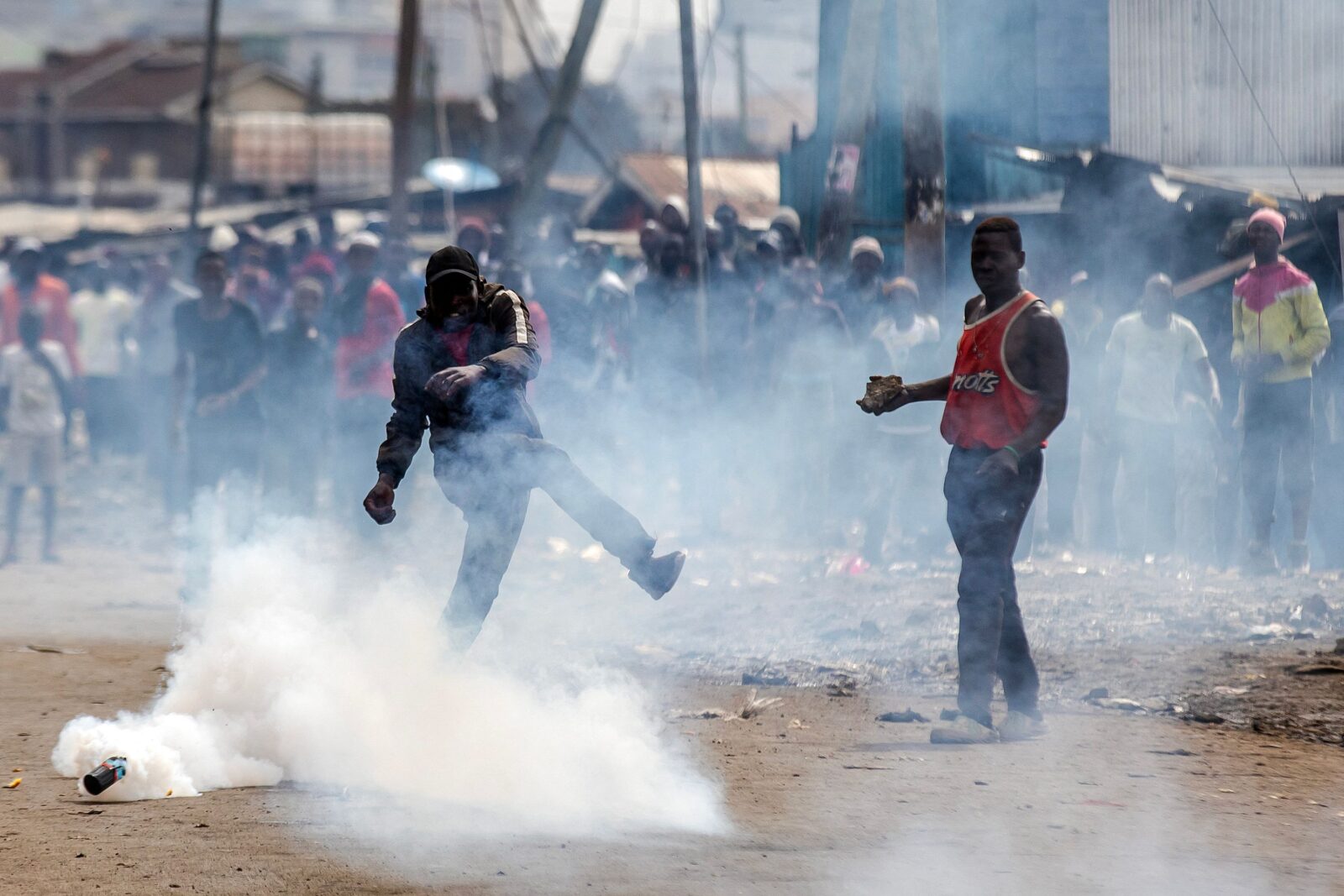Key roads in Nairobi and major cities across Kenya were barricaded on Monday as citizens returned to the streets to mark the first anniversary of the 2023 anti-government protests that rocked the nation and led to the death of at least 60 people. The commemorative demonstrations have reignited tensions between the government and opposition-aligned groups demanding economic reforms, justice for victims, and accountability for police violence.
Security forces established multiple checkpoints on the outskirts of Nairobi’s central business district, turning away vehicles and allowing only pedestrians through. This measure mirrors tactics used during last year’s unrest, which reached a peak when protesters stormed Kenya’s parliament building an unprecedented moment that drew global attention and condemnation.
The government, seemingly prepared for a possible repeat of last year’s turmoil, has deployed a heavy presence of security officers around critical state institutions including the National Assembly and State House, the president’s official residence. Parliament itself has been cordoned off with multiple layers of razor wire and riot barriers to prevent unauthorized access.
Businesses throughout downtown Nairobi remain closed, with shop owners fearing their premises could be vandalized or looted. Many have taken precautionary steps such as boarding up windows and relocating merchandise amid the uncertainty.
The 2023 protests were initially triggered by widespread frustration over rising living costs, controversial tax proposals, and perceived government mismanagement. They quickly evolved into a broader movement encompassing youth discontent, allegations of police brutality, and calls for greater transparency from President William Ruto’s administration.
This year’s anniversary demonstrations are being seen as both a tribute to those who lost their lives in last year’s violence and a renewed demand for reform. Organizers of the march say they are also seeking justice for victims of police violence, pointing to investigations by human rights groups that accused Kenyan security forces of using live ammunition against unarmed protesters.
International organizations, including Amnesty International and Human Rights Watch, have urged the Kenyan government to uphold the right to peaceful assembly and avoid excessive use of force. Diplomats in Nairobi are closely monitoring the situation, with several embassies issuing advisories to citizens to avoid travel to demonstration zones.
As the country grapples with inflation, high youth unemployment, and an ever-increasing cost of living, the renewed protests highlight the enduring frustration among many Kenyans who feel left behind by government policy. The coming days are expected to test the government’s capacity to balance law enforcement with democratic freedoms, as well as the opposition’s ability to channel public anger into sustained civic engagement without tipping the country into further instability.
The world watches as Kenya marks this volatile anniversary, hoping that lessons from the past year guide the nation toward peaceful dialogue and meaningful reform.













Leave a comment